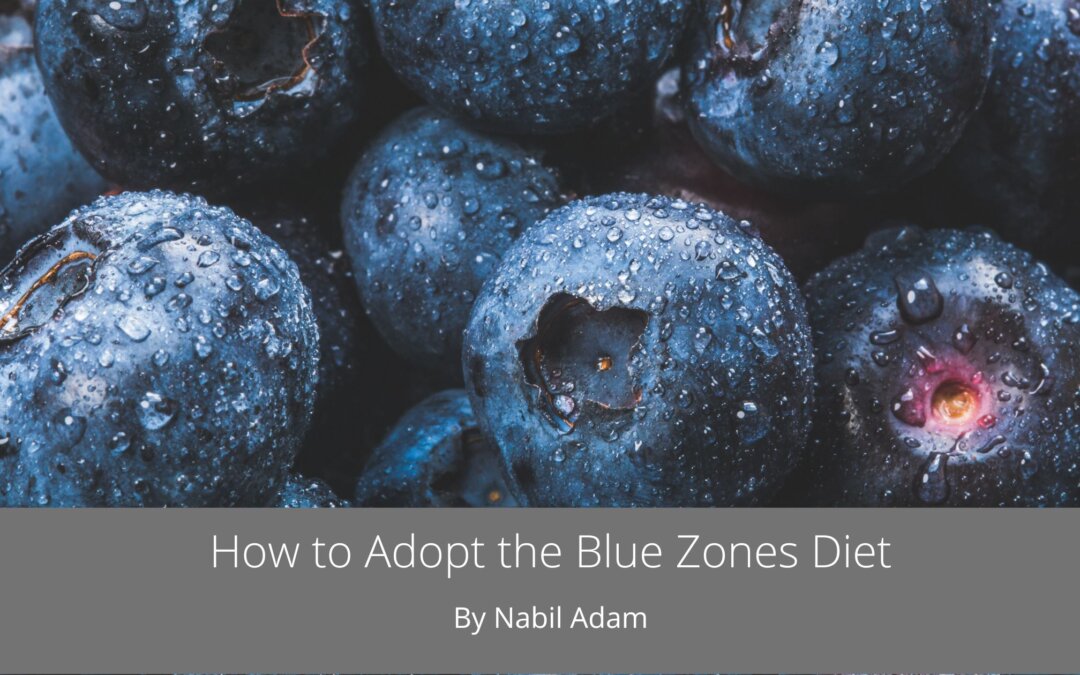The Blue Zones diet is a nutritional plan based on the dietary habits of people living in Blue Zones, regions where people live longer and healthier lives. These regions include Japan, Italy, Costa Rica, Greece, and California. The Blue Zones diet emphasizes whole foods, plant-based foods, and moderate amounts of lean protein. It is low in processed foods, added sugars, and unhealthy fats. Here are some tips on how to adopt the Blue Zones diet:
Eat various fruits and vegetables: The Blue Zones diet emphasizes eating various fruits and vegetables, especially those in season. This ensures you get various nutrients and antioxidants supporting your overall health.
Include whole grains: Whole grains, such as brown rice, quinoa, and oats, are a great source of fiber and other nutrients. They also help you feel full for more extended periods, which can prevent overeating.
Choose lean proteins: The Blue Zones diet recommends moderate quantities of lean protein, such as fish, chicken, beans, and nuts. These foods provide essential nutrients while being low in saturated fat.
Avoid processed foods: Processed foods are higher in added sugars, unhealthy fats, and sodium. They are also low in nutrients. Whole foods are minimally processed.
Use healthy fats: The Blue Zones diet emphasizes using healthy fats, such as olive oil, avocado, and nuts. These fats are rich in antioxidants and anti-inflammatory compounds, which can support heart health and reduce the risk of chronic diseases.
Practice mindfulness while eating: Pay attention to hunger and fullness cues. Monitor the taste, texture, and aroma of your food. This can help you enjoy your food more, prevent overeating, and improve digestion.
Cook at home: Cooking at home lets you control your meals’ ingredients and cooking methods. This can help avoid added sugars, unhealthy fats, and excess sodium in restaurants and processed foods.
Practice moderation: The Blue Zones diet is not about strict rules or deprivation. Instead, it emphasizes moderation and balance. Enjoying small amounts of indulgent foods can be part of a healthy diet if they are not consumed in excess.
Stay hydrated: Drink water and other hydrating beverages, such as herbal tea and coconut water, to support digestion, cognitive function, and overall health.
Be physically active: Physical activity is essential to a healthy lifestyle. The Blue Zones diet recommends regular physical activity, such as walking, cycling, or gardening, for at least 30 minutes daily.
Adopting the Blue Zones diet is about embracing a whole-foods, plant-based diet low in processed foods and unhealthy fats. It also emphasizes moderation, mindful eating, and regular physical activity. Following these principles can improve your overall health and well-being while enjoying delicious and nutritious meals.

